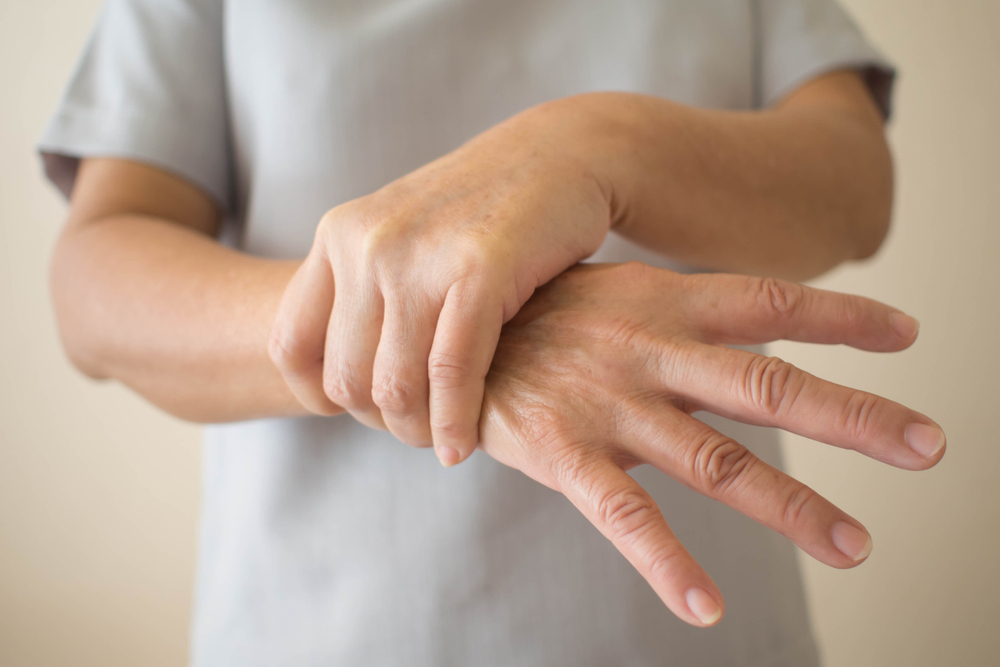Last Updated:
August 4th, 2025
Involuntary Shaking and Tremors Caused by Addiction
It can be easy to put shakes and tremors down to nerves, too much coffee or just feeling a little anxious about something. But if your body keeps shaking and you can’t make it stop, it could be a sign that substance abuse is taking a toll. Alcohol tremors and drug shakes are common with addiction but they often go ignored. This can put you at risk of more serious consequences, which could have been avoided with early intervention. Understanding why drug and alcohol shakes happen is the first step towards taking them seriously and getting the right help.
What is meant by “involuntary shaking tremors”?
Involuntary shaking tremors are sudden, uncontrollable movements in parts of your body. They can include trembling in your hands, arms, head or entire body that won’t stop, even when you try to stay still. Unlike a shaky hand from nerves or a caffeine overload, these tremors have no obvious trigger and don’t go away when you’re relaxed.
Involuntary shaking tremors can be mild, extreme, constant or just at certain times and are sometimes broken down into three types:
- Resting (static) tremors – Occur when your body is at rest and stop the movement.
- Intention (kinetic) tremors – Happen during movement and stop when the affected body part is at rest.
- Postural (action) tremors – Appear when a part of your body is working against gravity, such as when you’re lifting an object.
Involuntary shaking tremors are symptoms of many different conditions, including drug and alcohol addiction and substance withdrawal. As well as the physical effects, they can also make you feel frightened, self-conscious or like you’re not in control of your body.
Even if the tremors don’t feel extreme, they are still a sign that something isn’t quite right. Recognising and addressing them early can help prevent further complications and get you on the path to recovery.
Struggling with an addiction? If you are ready to seek help, reach out to us today, and a member of our compassionate team will help you find the best option for starting your recovery journey.
How can addiction cause involuntary shaking tremors?
Your central nervous system is incredibly sensitive to changes in chemicals, and alcohol and drug addiction can throw that balance off completely. Here are some of the substances which most commonly cause involuntary shaking tremors:
Alcohol tremors usually affect the hands, but they can sometimes spread throughout the body. They can worsen with stress, tiredness and anxiety, but often improve with another drink, which traps people in a vicious cycle.
These drug shakes are often paired with anxiety, paranoia or extreme fatigue during a comedown and in the withdrawal phase. Again, this often leads to a relapse, which is why the professional support provided in rehab treatment is so important.
What are the common signs of tremors to look out for?
Tremors can be one of the most visible physical symptoms of addiction and withdrawal, but they’re not always easy to understand at first. If you or someone you know is showing any of the following signs, it’s important to pay attention and consider whether substance use may be playing a part:
- Visible shaking in the hands, arms or legs: These are the most common tremors and are common with various types of drugs and during withdrawal, particularly from alcohol.
- Whole-body tremors: These are more severe drug tremors or alcohol shakes that can involve your entire body. They can make it very hard even to get up, and can be overwhelming during withdrawal.
- Jaw shaking and eyelid fluttering: These are very common with stimulants like ecstasy. Jaw shaking often causes teeth grinding and clenching, which is sometimes called “gurning”.
- Rhythmic twitching in the arms or legs: These are involuntary shaking tremors that are often experienced at night and when withdrawing from stimulants like meth or cocaine. It may feel like your limbs are moving on their own, often in short, repeated jerks.
- Worsening tremors under stress: If your shaking gets worse when you’re anxious, agitated or experiencing cravings, that’s another key sign it may be linked to addiction.
When to get help for involuntary shaking tremors
You should always get professional help if you have severe or persistent tremors. Various illnesses and conditions have tremors as a symptom, including:
- Parkinson’s disease
- Multiple sclerosis
- Overactive thyroid
- Brain damage due to trauma
- Fatigue
- Stress
- Anxiety
Your doctor can do several tests to check for these issues and then recommend and deliver the appropriate treatment. If your doctor suspects that your tremors are caused by substance abuse, a urine test will be done to determine what substances are in your system, and then the doctor will refer you to addiction treatment services.
There is no cure for substance-related tremors, but they usually fade away as the underlying addiction is being treated. Similarly, tremors due to fatigue or stress usually disappear once the stressors have been removed.
What are the dangers of ignoring shaking and tremors?
It is easy to minimise tremors as just being tired, stressed or coming down from something, but ignoring alcohol and drug shakes could have dire consequences.
Shaking and tremors linked to substance abuse often signal a deep strain on your nervous system. If left unaddressed, these symptoms can develop into seizures, serious neurological issues, or even signal that you’re at risk of overdose, especially if the shaking is paired with confusion, sweating or a racing heart.
Long-term alcohol use, for example, can indicate brain changes that may lead to Wernicke-Korsakoff syndrome (alcohol-related brain damage). Drug shakes caused by stimulants may point to dangerously high blood pressure or overheating, both of which can lead to stroke or heart attack.
Even if your tremors aren’t severe yet, the anxiety they bring can chip away at your mental health. Many people end up trapped in a cycle of using more to calm the shaking, which only worsens the damage over time.
What should I do if myself or a loved one is experiencing involuntary shaking tremors from addiction?
If you or someone you love is struggling with substance-related tremors, Addiction Helper can give you the advice and support you need. While it can be tempting to hope they go away, ignoring tremors means ignoring a chance to get ahead of something serious before it’s too late. Contact us today and we can assess your situation and get you the help you need.
Our compassionate team are ready and available to take your call, and guide you towards lasting the lasting addiction recovery you deserve.



